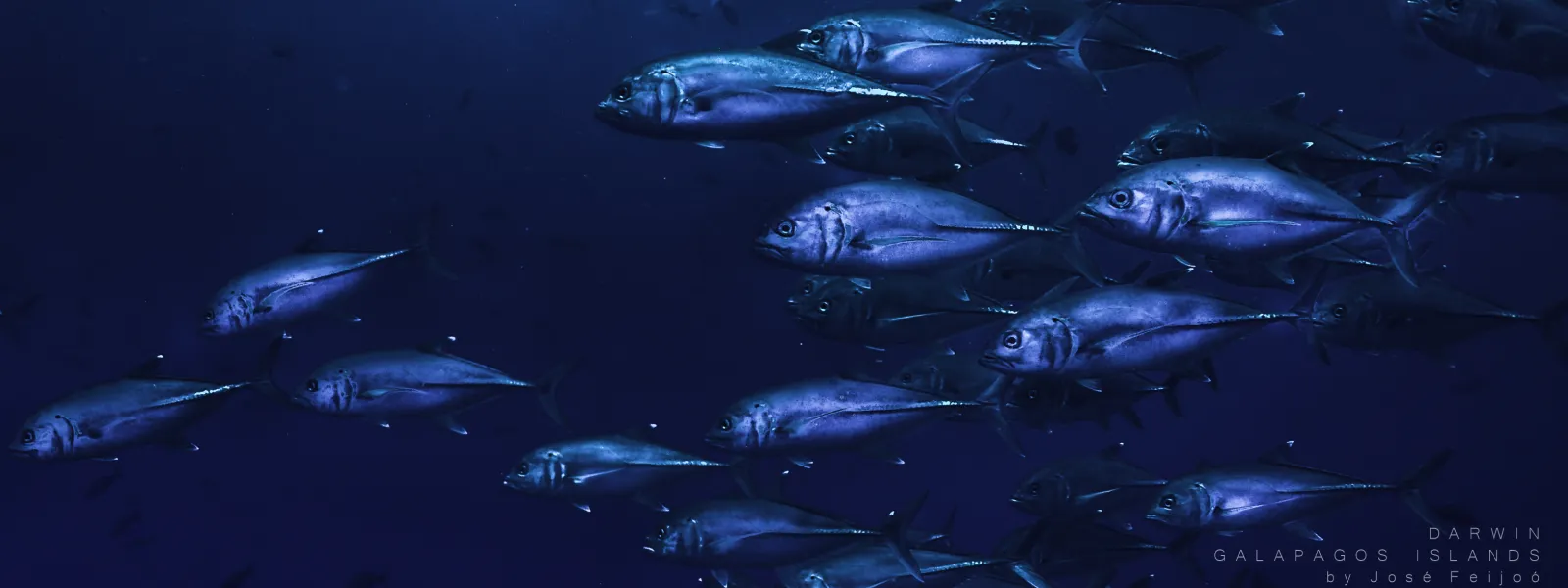
Publications

The Protection of Coral Reefs in Mexico (in Spanish)
This report outlines the importance of coral reefs in the world—in Mexico in particular—and explores case studies, outlines relevant international treaties and obligations, and looks to best practices from nations around the region for inspiration. Download the report (in Spanish)
Read more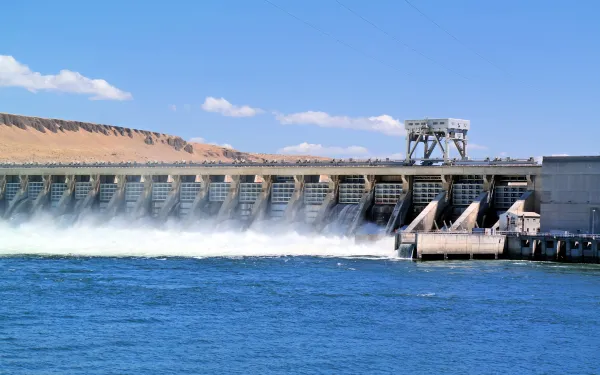
Open letter to governments, international institutions and financial mechanisms to stop considering large dams as clean energy and to implement real solutions to climate change
57 CIVIL SOCIETY ORGANIZATIONS AND COALITIONS IN LATIN AMERICA INSIST THAT LARGE DAMS ARE NOT CLEAN ENERGY SOURCES AND WE ASK GOVERNMENTS, INTERNATIONAL ORGANIZATIONS AND FINANCIAL INSTITUTIONS TO IMPLEMENT REAL SOLUTIONS TO CLIMATE CHANGE It is time to learn from the past and to implement alternatives appropriate to our time According to the World Commission on Dams, by the year 2000, fifty thousand dams had already been built, disrupting more than 60% of Earth’s rivers.[1] In Latin America alone, 973 dams of all sizes are operating, and roughly 1,600 more are being built or planned—254 in the Amazon Basin.[2] Scientific evidence reveals that large dams: emit greenhouse gases, including methane, especially in tropical regions,[3] aggravating climate change, and making adaptation more difficult; cost almost twice their initial budget, causing economic difficulties in the communities and countries where they are implemented;[4] take a long time to become operational, making them an inefficient solution to the urgent energy crisis that they are intended to tackle;[5] may cause great and irreparable environmental damage; and may cause human rights violations and impoverishment of communities if not implemented with appropriate safeguards. Nevertheless, they continue to be promoted as clean energy sources to meet increasing energy demand.[6] Why are dams not clean energy sources and why are alternatives needed? 1. Because they contribute to climate change and make adaptation more difficult Construction and operation of large dams in tropical regions causes emission of CO2 and methane from the large amounts of flooded and retained organic matter in reservoirs. The greenhouse gas effect of methane is between 20 to 40 times more powerful than that of CO2.[7] Dams also destroy large areas of surrounding lands needed to build them. Dams are not flexible enough to endure climate change. On the contrary, they are inefficient in droughts and unsafe in floods, which aggravates the risk of disasters. Moreover, they threaten communities’ entire hydrologic system, destroying key ecosystems and fisheries, thus compromising communities’ ability to adapt to climate change. 2. Because of the cost overruns, delays and economic damage that they entail Data show that the final cost of the majority of dams that have been built is 96% greater than their initial budgets. This expense has been linked to the increase of public debt and to economic crisis in several countries.[8] 3. Because they take a long time to become operational, making them an inefficient solution to the urgent energy crisis that they are intended to tackle Construction of large dams takes approximately 8.6 years, plus time to begin operating,[9] and they operate on average only 50 years.[10] Experts have documented that eight out of every ten dams exceed their initial construction-time estimates by more than 44%.[11] Dams are not an efficient solution to growing and urgent energy demand. 4. Because they may cause great and irreparable environmental damage Large dams cause environmental damages to rivers, hydrologic basins and surrounding ecosystems, including: worsening water quality in rivers; degradation of aquatic ecosystems and disappearance of many riparian ecosystems; and serious harms to biodiversity, including the extinction of species.[12] 5. Because environmental damage may violate human rights and impoverish communities The human rights of the people affected by large dams have been systematically unrecognized. Large dams have caused forced displacement;[13] health problems; loss of food sources and traditional ways of life; community impoverishment;[14] and criminalization of social protest. Additionally, permitting processes are generally flawed; permits are issued without comprehensive environmental or social impact assessments, and without adequate public participation and consultation. TODAY there are cleaner, more efficient, less costly and faster alternatives to respond to energy demand. Therefore we DEMAND that Governments, international organizations and financial institutions immediately: Stop considering large dams as clean energy sources, given the proved negative impacts mentioned above. These impacts must be considered comprehensively. Incorporate in the planning stage for new dams: scientific evidence of greenhouse gas emissions, including methane produced by reservoirs; the instability that climate change causes in the hydrologic regime; lessons learned regarding costs and real implementation time of large dams; comprehensive evaluation of environmental and social impacts that will be caused; an integrated, realistic energy strategy through a Comprehensive Plan for Electric Sector Energy Resources; Make decisions that account for impacts on the environment, human rights and climate change. Implement real energy solutions that prove to be effective, with benefits that outweigh the harms they cause. Adopt inclusive and transparent decision-making processes, taking into account the whole spectrum of energy alternatives. Abogadas y Abogados para la Justicia y los Derechos Humanos, A.C., México Alianza de Comunidades y Usuarios en Defensa del Río Biobos-Nautla, México Alianza para la Conservación y el Desarrollo (ACD), Panamá Amazon Watch, Estados Unidos Amazónicos por la Amazonía (AMPA), Perú Amigos del Río San Rodrigo, México Asamblea Veracruzana de Iniciativas y Defensa Ambiental (LAVIDA), México Asociación Ambiente y Sociedad, Colombia Asociación Amigos de los Parques Nacionales (AAPN), Argentina Asociación Ceiba, Guatemala Asociación de Ecología Social (AESO), Costa Rica Asociación Interamericana para la Defensa del Ambiente (AIDA), Regional Asociación Palmareña para la Recuperación del Ambiente (APRA), Costa Rica Asociación Peruana para la Conservación de la Naturaleza, Perú Asociación Pro Derechos Humanos (APRODEH), Perú Asociación Proyectos Alternativos para Desarrollo Social (PROAL), Costa Rica Bloque Verde, Costa Rica Centro de Desarrollo Étnico (CEDET), Perú Centro de Documentación en Derechos Humanos “Segundo Montes Mozo S.J.” (CSMM), Ecuador Centro de Estudios para la Justicia Social "Tierra Digna", Colombia Centro de Promoción y Defensa de Derechos Humanos Arequipa (CEPRODEH), Perú Centro Humboldt, Nicaragua Centro Mexicano de Derecho Ambiental, A.C. (CEMDA), México Centro para la Sostenibilidad Ambiental de la Universidad Peruana Cayetano Heredia (CSA-UPCH), Perú Colectivo Defensa Verde Naturaleza para Siempre, México Comisión de Derechos Humanos de Ica, Perú Comisión Ecuménica de Derechos Humanos (CEDHU), Ecuador Comité por los Derechos en América Latina (CEDHAL), Canadá Consejo de Ejidos y Comunidades Opositores a la Presa La Parota (CECOP), México Coordinadora de Afectados por Embalses y Trasvases (COAGRET), España Coordinadora Nacional de Derechos Humanos, Perú Derechos Humanos y Medio Ambiente, Perú Ecologia E Ação (ECOA), Brasil Federación Ecologista de Costa Rica (FECON), Costa Rica Finca Amalur, Costa Rica Fiscalía del Medio Ambiente (FIMA), Chile Foro Ciudadano de Participación por la Justicia y los Derechos Humanos (FORO), Argentina Fórum Solidaridad Perú, Perú Fundación Centro de Derechos Humanos y Ambiente (CEDHA), Argentina Fundación Ecuménica para el Desarrollo y la Paz (FEDEPAZ), Perú Fundación GaiaPacha, Bolivia Fundación POPOL NA, Nicaragua Fundar, México Grupo Ecologista Cuña Pirú, Argentina Instituto Madeira Vivo (IMV), Brasil International Rivers, Estados Unidos JASS, Asociadas por lo Justo, México Justicia para la Naturaleza, Costa Rica María Esperanza Alonso, especialista de Derecho Ambiental, Argentina Movimiento Ciudadano frente al Cambio Climático (MOCICC), Perú Oilwatch Mesoamérica, Costa Rica Plataforma Interamericana de Derechos Humanos, Democracia y Desarrollo (PIDHDD Regional), Ecuador Programa Chile Sustentable, Chile Pueblos Unidos de la Cuenca Antigua por los Ríos Libres, México Red Jurídica Amazónica (RAMA), Bolivia Sociedad Peruana de Derecho Ambiental (SPDA), Perú Unión Norte por la Vida, Costa Rica For more information: AIDA on dams: http://www.aida-americas.org/es/project/grandesrepresas International Rivers: http://www.internationalrivers.org/ Report: Grandes Represas en América: ¿Peor el Remedio que la Enfermedad? Blog: Desmantelando el mito de las represas, Grandes represas elefantes blancos, Hydropower Will Not Solve All Africa's Problems [1] World Commission on Dams Report. http://www.internationalrivers.org/files/attached-files/world_commission_on_dams_final_report.pdf [2] State of the World’s Rivers. http://www.internationalrivers.org/worldsrivers/ [3]2013 IPCC Supplement to the 2006 Guidelines for National GHG Inventories: Wetlands http://www.ipcc-nggip.iges.or.jp/public/wetlands/ [4]Ansar, Atif and Flyvbjerg, Bent and Budzier, Alexander and Lunn, Daniel, Should We Build More Large Dams? The Actual Costs of Hydropower Megaproject Development (March 10, 2014). Energy Policy, March 2014, pp.1-14. [5] Ibid [6] Directions for the World Bank Group’s Energy Sector. http://www.worldbank.org/content/dam/Worldbank/document/SDN/energy-2013-0281-2.pdf [7] Climate and Clear Air Coalition. Short-Lived Climate Pollutants. (2011). http://www.unep.org/ccac/ShortLivedClimatePollutants/tabid/101650/Default.aspx. [8] Ansar, A et al. Furthermore, the Brazilian Federal Court of Accountability carried out a study of the energy projects developed between 2005 and 2012, and it concluded that almost 80% of dams will not comply with their schedule. http://oglobo.globo.com/economia/tcu-constata-atrasos-nas-obras-de-energia-leiloadas-pelo-governo-de-2005-2012-13822128 (Spanish) [9] Ansar, A., et al. [10] Friends of the Earth, et al. Dam Removal Success Stories. (1999). http://www.michigandnr.com/publications/pdfs/fishing/dams/SuccessStoriesReport.pdf http://www.teachengineering.org/view_lesson.php?url=collection/cub_/lessons/cub_dams/cub_dams_lesson08.xml [11] Ansar, A., et al. [12] AIDA. Grandes Represas en América: ¿Peor el remedio que la enfermedad? http://www.aida-americas.org/sites/default/files/InformeAIDA_GrandesRepreseas_BajaRes_1.pdf (Spanish) [13] According to the World Commission on Dams, between 40 and 80 million people have been displaced due to big dams—approximately one out of every 100 people alive today. [14] Thayer Scudder, California Institute of Technology, promoted construction of dams for 58 years, believing that they were an option for the relief of poverty. He publicly changed his mind when he was 84 years old, declaring that they are not worth their cost and that many of the dams currently under construction will have disastrous consequences. New York Times. http://www.nytimes.com/2014/08/24/opinion/sunday/large-dams-just-arent-worth-the-cost.html?emc=eta1&_r=3
Read more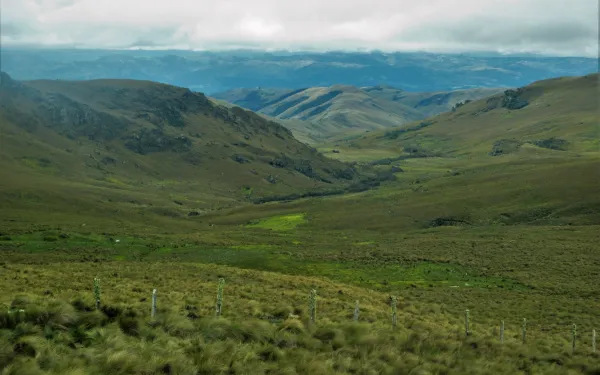
Letter presenting Latin American civil society organizations' concerns on the dilution of the World Bank's safeguards policies
Latin American civil society organizations "strongly recommend that CODE members send the first draft back to Management. Without structural changes to the Safeguard Policy proposal, we question if the second phase of consultations and the review process will be meaningful". According to them, dilution of the current Bank Safeguards Policy is evident throughout the draft. Basic World Bank requirements to assess and manage environmental risks and impacts before approval are now relaxed by providing the unbounded deferral of appraisal of significant environmental and social risks or impacts to implementation. A second major concern is that the draft proposed Social and Environmental Policy and ESSs significantly shift responsibility for safeguards implementation to borrowers, but provides less clarity than current exists on when/how the use of borrower systems would be preferable and acceptable. It remains unclear how the proposed draft will help the Bank and Borrowers make decisions to prepare or use borrower systems to effectively implement safeguards in countries where major dilutions of national social and environmental frameworks are being proposed or recently approved. "The proposed draft misses opportunities to meet the highest international standards. The draft provides no binding language regarding international human rights standards and allows governments to "opt out" of compliance to the Indigenous Peoples Policy to protect Indigenous Peoples rights, which unequivocally undermines the international consensus regarding the specific and fundamental rights of indigenous peoples over their lands, resources and the course of their own development", the organizations argue.
Read more
Joint letter: Mexico – Detention of environmental and human rights defender Mr. Marco Antonio Suástegui Muñoz
The 57 organizations and persons signatory to the letter, which work for the protection of human rights and the environment, express their deep concern at the detention of Mr. Marco Antonio Suástegui, leader of the Consejo de Ejidos y Comunidades Opositores a la Presa La Parota – CECOP (Council of Communal Lands and Communities Opposing the La Parota Dam), on 17 June by members of the Ministerial Police of the Attorney General of Justice of Guerrero State. We call upon the Mexican State to take effective and urgent measures to guarantee the human rights of Mr. Suástegui and the important work that the human rights defender performs in defence of the Papagayo River. In particular, we consider it fundamental that the State: Take measures to ensure that the competent authorities guarantee the right to a defence and due process of Mr. Marco Antonio Suástegui, and reverse any action taken in the detention procedure and past transfers that tainted by illegalities, Take measures to guarantee his physical and psychological integrity, and Take all necessary measures to secure the work for the defence of human rights and the environment undertaken by Marco Antonio Suástegui, and take an active role in avoiding any act that hinders the actions taken to defend the Papagayo River.
Read more
New Hope for Environmental Justice in IFI Projects
In its budget bill for 2014, the US Congress has taken bold steps to promote environmental justice within international financial institutions. Among other measures, the bill instructs the US representatives in these institutions to oppose large dams and logging projects that affect primary tropical forests, and to seek justice for the victims of human rights violations in IFI projects such as the Chixoy Dam in Guatemala. With input from other groups, International Rivers and AIDA published a factsheet which summarizes the provisions of the budget bill and the opportunities it creates for NGOs. The factsheet is addressed at partner groups monitoring and campaigning against IFI projects.
Read more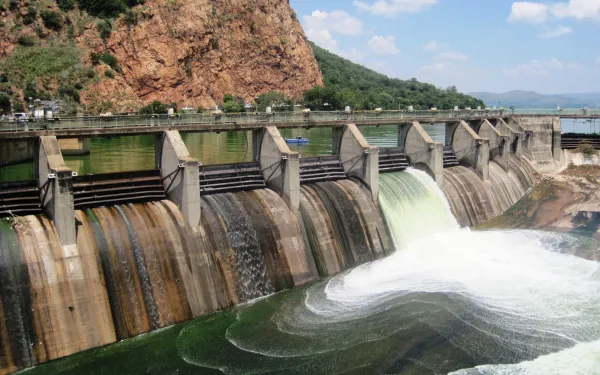
The link between international environmental law, human rights and large dams
The article is an update and reissue of two chapters of the report Large Dams in the Americas: Is the Cure Worse than the Disease, written by Jacob Kopas and Astrid Puentes Riaño. The article identifies “the main obligations, standards, decisions and international law applicable to large hydropower plants that our governments should use in the planning, implementation, operation and closure of these projects." The article is divided into two parts. Chapter I offers an overview of the main standards, the legal framework of international human rights and environmental law as well as the decisions and international jurisprudence applicable to the cases of large dams. In Chapter II, this framework is applied to the cases of human rights abuses caused by the degradation of the environment through the development of a large dam.
Read more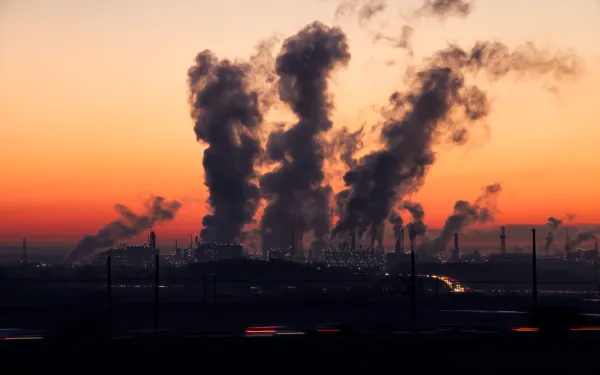
Short-lived climate pollutants: An opportunity to reduce emissions
AIDA together with CEDHA, CEMDA and RedRacc have produced a briefing paper on short-lived climate pollutants (SLCPs) for presentation at the 19th Conference of the Parties (COP19) on climate change, which is running November 11 to 22 in Warsaw, Poland. SLCPs are agents that contribute to global warming and have a relatively short lifetime in the atmosphere, from a few days to a few decades. That’s different from CO2, which remains in the atmosphere for centuries or millennia after emission. CO2 contributes an estimated 55% to 60% to global warming, while the remaining 40-45% comes from the emission of SLCPs. The latter seriously affect human health and ecosystems, meaning that any reduction in their emissions also brings significant social benefits. The fact that these contaminants remain so little time in the atmosphere means that their mitigation brings short-term benefits, in particular to the most vulnerable regions of the world already suffering the impacts of climate change. We must seize the opportunity to reduce SLCPs in the fight against the effects of this global challenge. Our paper explains what SLCPs are, which are the most relevant ones, and what are the reasons we should work to regulate and reduce their emissions. The paper also provides recommendations for taking on the challenge. Read the Fact Sheet (in Spanish)
Read more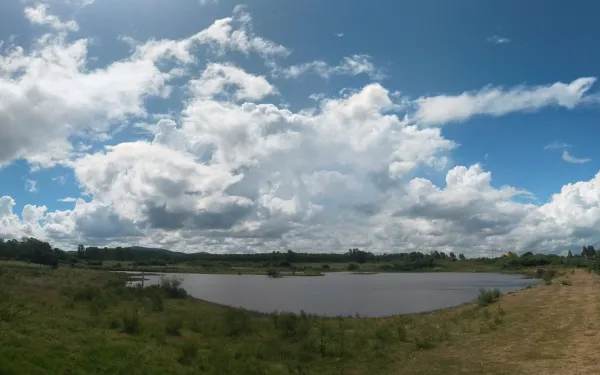
Letter to the President of the World Bank Group
DR. JIM YONG KIM PRESIDENT THE WORLD BANK GROUP Dear Dr. Kim: We are writing to express our deepest concern regarding the World Bank Group decision to start financing and promoting large hydroelectric projects as “sustainable energy.” We urge you to review the information about negative impacts that large dams have had on the environment and human rights in the Americas, and to reconsider that decision. Large dams commonly cause severe harm to the environment. Underwater decomposition of trees and plants releases major quantities of methane, contributing to climate change. Large dams degrade water quality and sanitation both upstream and downstream from the artificial modification of river systems. Degradation of aquatic ecosystems leads to loss of biodiversity. Seismic instability is another common consequence of dam construction. These environmental harms often violate human rights protected by international legal instruments. These projects repeatedly generate health risks, block access to traditional food sources, and interfere with the ability to earn a livelihood. They displace entire communities, interfering with the human rights to freedom of movement, property, housing, and just compensation. State sponsors of large dams routinely fail to produce comprehensive environmental and social impact assessments, which are required by international law. Access to the information that should be provided by such an assessment is essential to ensuring the human rights to informed consent and prior consultation. Specific international laws and standards that apply to indigenous, afro-descendant and tribal peoples are routinely ignored. In some cases, public protest to ill-considered dam projects is criminalized, contrary to international human rights law. Many organizations and institutions, including the World Commission on Dams, have identified these negative consequences. AIDA has also produced a report analyzing the effects of large dams on the environment and human rights, “Large Dams in the Americas.” The executive summary of the report (in English) and the full version (in Spanish) are attached to this letter. AIDA stands with the World Bank Group in supporting development in Latin America. But that development should be sustainable. It should not come at the expense of the environment and human rights. Promotion of truly renewable resources, including wind, solar, and geothermal energy, can also encourage development that sustains growing economies, thriving environments, and respect for human rights. We insist that the World Bank Group finance only projects that abide by international law and standards, and give due and full consideration to alternative energy sources and efficiency measures. We would be more than happy to help the World Bank Group to drive true, sustainable development and to promote projects that increase human well-being while also protecting the environment and human rights. We hope you find this information useful and incorporate it into World Bank policy.
Read more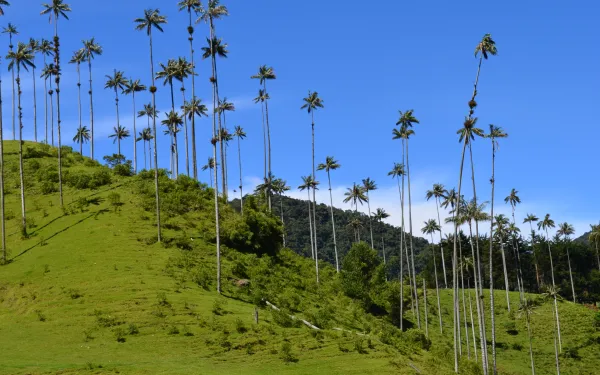
Letter to the Board of the Green Climate Fund
Organizations, movements and civil society groups from developing countries -with decades of experience working for the rights and aspirations of peoples and communities- express their unified call for the adoption of the most robust environmental and social protections at the Green Climate Fund.
Read more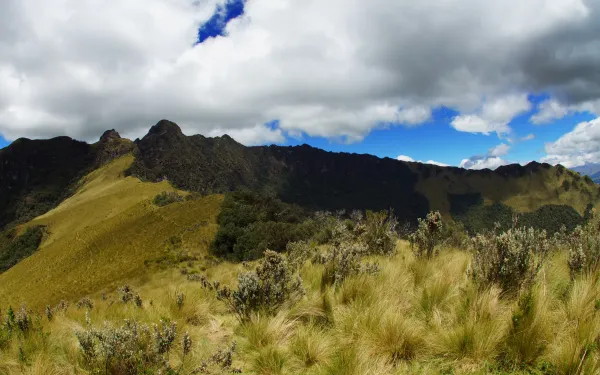
Declaration of Civil Society Organizations that Participated in the First Regional Forum on Business and Human Rights in Latin America and the Caribbean
The organizations signing the declaration regret that " the Forum was far from a plural confluence of diverse actors. In the seven panels that made up the two days of the event, 47 people participated, of which only 10% came from communities affected by business activities or human rights NGOs that work with such communities." Therefore, organizations "respectfully but emphatically call on the Working Group, the Human Rights Council, and the international community to correct the aforementioned problems and guarantee the adequate participation of civil society and groups of affected peoples, both in form as well as content, in the Second Global Forum on Business and Human Rights, which will take place in Geneva on December 2-4, 2013".
Read more